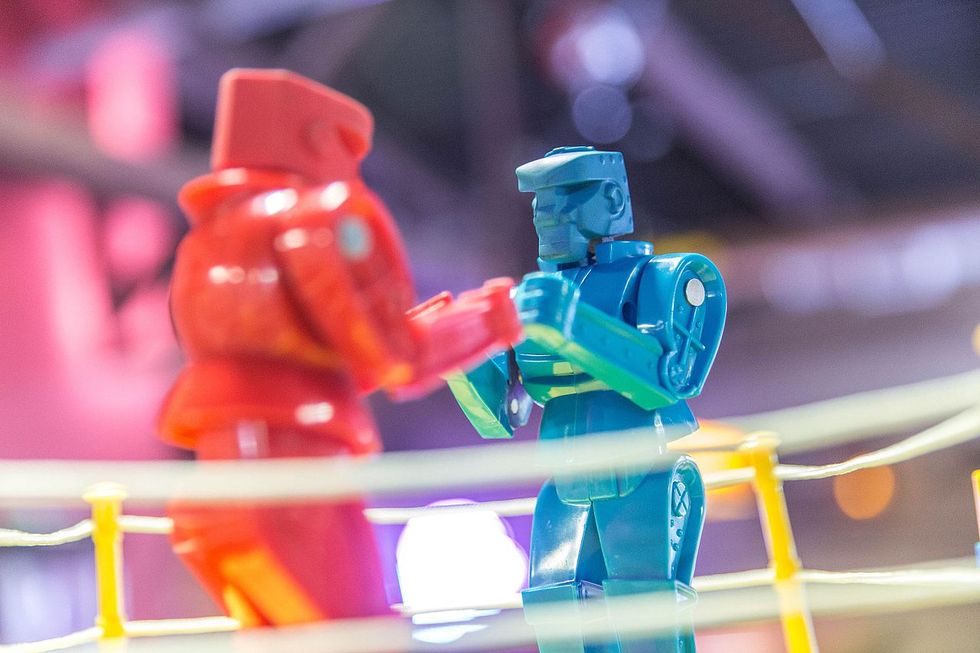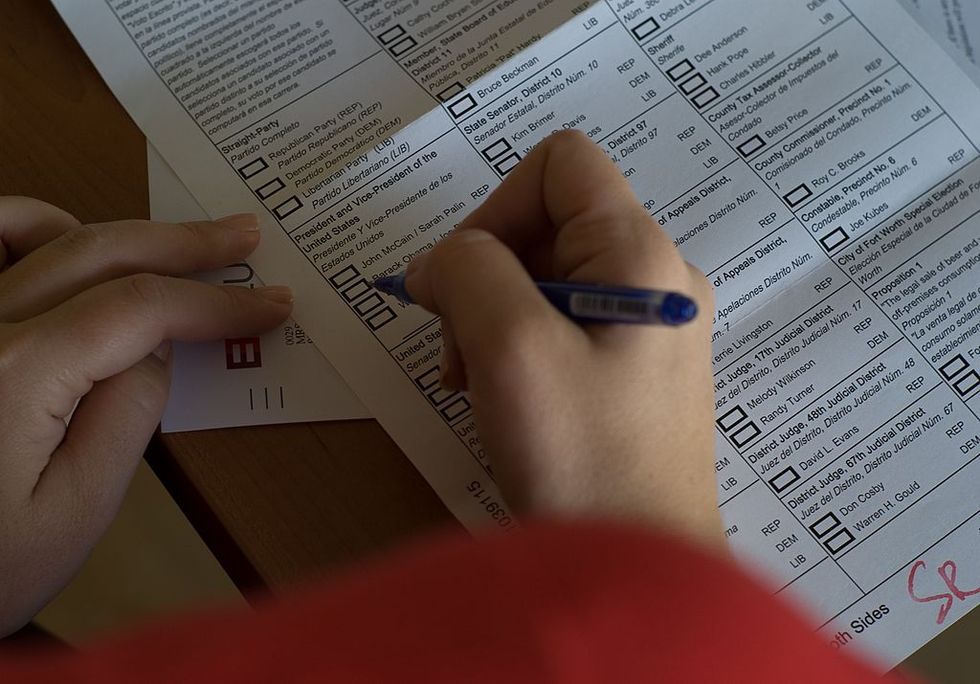Hi. My name’s Amanda MacFarlane - I’m an independent - and I fear that my political leaning (or lack of leaning) is a lost cause.
According to the Pew Research Center, tracking political leanings between 1992 and 2016, a whopping 92 percent of Americans are politically affiliated with one of the two major parties in the United States. They either lean towards one party or identify themselves as either a republican or democratic. Needless to say, the United States is a divided country.
In fact, the title of the findings published on their website is entitled “The Parties on the Eve of the 2016 Election: Two Coalitions, Moving Further Apart.” So not only are we divided, but we are becoming more polarized.
However, I don’t need a fancy percentage to prove any of that to you, because the reason why you clicked on this article probably has something to do with your knowledge and experience with the current state of division in American politics.
Like any good conflict, the bipartisan split has been sensationalized and signs of alienation between the two parties have been plastered all over the press. Not a day goes by when I don’t hear from one side about how the other side is doing it all wrong.
Unlike what we think to be typical political situations, where you hear about our elected officials on some hill far away somewhere bickering over small matters with very little impact on our daily lives, pitching your tent on one side of the aisle seems to have become something of a home sport.
Sure, the average American can’t keep up with every political change that makes its way to the ballot box, but what they can do is pledge themselves to an overarching ideology. The NFL and its Fantasy Football Leagues can be paralleled with the US government and its political parties in terms of getting into people’s homes and being upheld with such fervent love and competitiveness.
The division: What any heated and televised political event is beginning to look like to me.
It’s not just for pure sport, where you can hash it out when the mood strikes you and shrug it off. Rather, it affects every part of your life. From what kind of news channel you watch in the morning, to how you decorate your bedroom. If you don’t believe me, I can assure you that I’ve stayed overnight in rooms completely decked out in red, white, and blue donkeys and I’ve lived in homes where the only news channel that was deemed acceptable was Fox News.
I’ve had people straight up tell me that they cannot be friends with others who voted for the “other side,” because how could they truly get along if they didn’t align politically? Even potential partners from online dating apps will be vetted with supreme caution by who they voted for in the last presidential election. We shut the door in the faces of people we judge based off of a single claim of affiliation.
This rivalry isn’t new per se. After all, the only president in this country’s history who has ever made it into office with a unanimous vote was George Washington, and that was more than 200 years ago.
What worries me isn’t necessarily the conflict (history is marked by the struggles for power), but rather the way it has almost become fanatical. It’s not an ideology anymore, it’s a lifestyle. It’s either you’re with me or you’re not. You’re one of us or you’re the other. You’re right or you’re wrong. After all, long before the founding of this country, there was uproar over one Julius Caesar, and well, we all know what happened to him.
For all the emphasis we place on this alignment though, it is rare that I meet a person who completely agrees with the political leanings of their chosen party. What I will hear is, “I like some of his policies, but I don’t necessarily like him,” or, “She’s not the best choice, but what other choice do we really have?”
My issue with this train of thought is that no matter what, you’re settling. You’ve literally bought into the idea that you have to pick between the lesser of two poisons, and the elected gets the honor of being considered our representative when, according to Gallup in 2011, 52 percent of Americans consider either of the two established parties to be doing a poor job at representation.
It’s not any one person’s fault. After all, your choices in fast food in any major city can seem excessive compared to the ones you get on the ballot and it’s so easy to make a decision to vote for all members who claim a specific party. At this point, we’re so used to this system that it’s almost impossible to imagine any realistic and alternative way of doing things.
In case you can't see, there are exactly four boxes on this ballot for what is sometimes considered the highest office someone can hold in the United States.
Sure, if we feel like our parties are failing us, we could seriously consider backing a third party and adopting it into our system, but those historically have never been successful at winning presidential office. According to PBS, the closest we ever got was Roosevelt in 1912 and he only managed to win six states. Enough to have influence, but not enough to seriously change the way the bipartisan system operated. I'm also not sure if adding another party to the mix would do anything to help the division either.
For someone my age (or any self-proclaimed “’90s kid”), it’s even more distressing because I keep hearing from my peers that we haven’t seen clear proof of the parties even trying to work together in our lifetime. The government just blows a fuse every once in a while and shuts down. No problem. Just flip the breaker and move on like nothing ever happened in the first place.
“So what’s your solution?” you ask. For all of my griping on the topic, you expect me to have an answer. After all, proving that I have no better solution than our current situation would make my view point irrelevant or in the very least ineffectual. I’m sure this would be a great win for anyone who wants to continue sweeping the issue of political divide under the rug.
However, I’m here to tell you that I don’t have an answer and that should scare you all the way down to your politically-affiliated core. You did it, America – you got me.










































